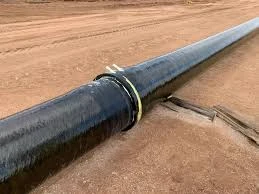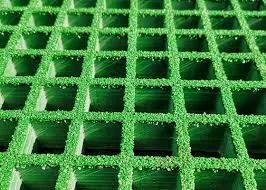
-
 Afrikaans
Afrikaans -
 Albanian
Albanian -
 Amharic
Amharic -
 Arabic
Arabic -
 Armenian
Armenian -
 Azerbaijani
Azerbaijani -
 Basque
Basque -
 Belarusian
Belarusian -
 Bengali
Bengali -
 Bosnian
Bosnian -
 Bulgarian
Bulgarian -
 Catalan
Catalan -
 Cebuano
Cebuano -
 China
China -
 China (Taiwan)
China (Taiwan) -
 Corsican
Corsican -
 Croatian
Croatian -
 Czech
Czech -
 Danish
Danish -
 Dutch
Dutch -
 English
English -
 Esperanto
Esperanto -
 Estonian
Estonian -
 Finnish
Finnish -
 French
French -
 Frisian
Frisian -
 Galician
Galician -
 Georgian
Georgian -
 German
German -
 Greek
Greek -
 Gujarati
Gujarati -
 Haitian Creole
Haitian Creole -
 hausa
hausa -
 hawaiian
hawaiian -
 Hebrew
Hebrew -
 Hindi
Hindi -
 Miao
Miao -
 Hungarian
Hungarian -
 Icelandic
Icelandic -
 igbo
igbo -
 Indonesian
Indonesian -
 irish
irish -
 Italian
Italian -
 Japanese
Japanese -
 Javanese
Javanese -
 Kannada
Kannada -
 kazakh
kazakh -
 Khmer
Khmer -
 Rwandese
Rwandese -
 Korean
Korean -
 Kurdish
Kurdish -
 Kyrgyz
Kyrgyz -
 Lao
Lao -
 Latin
Latin -
 Latvian
Latvian -
 Lithuanian
Lithuanian -
 Luxembourgish
Luxembourgish -
 Macedonian
Macedonian -
 Malgashi
Malgashi -
 Malay
Malay -
 Malayalam
Malayalam -
 Maltese
Maltese -
 Maori
Maori -
 Marathi
Marathi -
 Mongolian
Mongolian -
 Myanmar
Myanmar -
 Nepali
Nepali -
 Norwegian
Norwegian -
 Norwegian
Norwegian -
 Occitan
Occitan -
 Pashto
Pashto -
 Persian
Persian -
 Polish
Polish -
 Portuguese
Portuguese -
 Punjabi
Punjabi -
 Romanian
Romanian -
 Russian
Russian -
 Samoan
Samoan -
 Scottish Gaelic
Scottish Gaelic -
 Serbian
Serbian -
 Sesotho
Sesotho -
 Shona
Shona -
 Sindhi
Sindhi -
 Sinhala
Sinhala -
 Slovak
Slovak -
 Slovenian
Slovenian -
 Somali
Somali -
 Spanish
Spanish -
 Sundanese
Sundanese -
 Swahili
Swahili -
 Swedish
Swedish -
 Tagalog
Tagalog -
 Tajik
Tajik -
 Tamil
Tamil -
 Tatar
Tatar -
 Telugu
Telugu -
 Thai
Thai -
 Turkish
Turkish -
 Turkmen
Turkmen -
 Ukrainian
Ukrainian -
 Urdu
Urdu -
 Uighur
Uighur -
 Uzbek
Uzbek -
 Vietnamese
Vietnamese -
 Welsh
Welsh -
 Bantu
Bantu -
 Yiddish
Yiddish -
 Yoruba
Yoruba -
 Zulu
Zulu
Feb . 01, 2025 05:05
Back to list
Car and Boat Body
Navigating the vast oceans demands shipbuilding materials that are resilient, reliable, and adaptable. Fiberglass pipes and fittings have emerged as a revolutionary solution for the shipbuilding industry, setting a new standard for maritime construction materials that exceed the highest expectations in quality and performance.
Fiberglass pipes and fittings are not just robust; they are customizable. Ship designs often require unique solutions to fit complex geometries and space constraints. Fiberglass can be molded and adapted to any shape, size, or specification required, giving ship designers the flexibility to innovate without material limitations. This adaptability leads to bespoke solutions that exactly match the demands of modern shipbuilders and owners. When considering the environmental impact, fiberglass pipes present a more favorable profile. Their longevity means fewer replacements and, consequently, less waste over the life cycle of a ship. Enhanced fuel efficiency due to weight reduction also translates into reduced greenhouse gas emissions, supporting sustainable maritime practices—a vital consideration as the shipping industry faces increasing scrutiny. Maintaining trustworthiness and reliability, quality assurance in fiberglass manufacturing includes rigorous testing and adherence to global standards. Products undergo impact, pressure, and quality tests to guarantee that they can endure real-world maritime scenarios. Certifications from international marine and quality assurance bodies further reinforce these products' credibility, making fiberglass a trusted choice for naval architects and shipbuilders worldwide. In conclusion, fiberglass pipes and fittings embody an innovation that addresses the key challenges in shipbuilding today. They combine unparalleled resistance to harsh marine environments, versatility in design, and a commitment to sustainability. As global sea trade continues to expand and the demand for efficient, robust, and eco-friendly ships grows, fiberglass will undoubtedly play an integral role in the next generation of maritime engineering solutions. Those who choose to incorporate fiberglass not only invest in superior material performance but also in the future of efficient, reliable, and sustainable seafaring.


Fiberglass pipes and fittings are not just robust; they are customizable. Ship designs often require unique solutions to fit complex geometries and space constraints. Fiberglass can be molded and adapted to any shape, size, or specification required, giving ship designers the flexibility to innovate without material limitations. This adaptability leads to bespoke solutions that exactly match the demands of modern shipbuilders and owners. When considering the environmental impact, fiberglass pipes present a more favorable profile. Their longevity means fewer replacements and, consequently, less waste over the life cycle of a ship. Enhanced fuel efficiency due to weight reduction also translates into reduced greenhouse gas emissions, supporting sustainable maritime practices—a vital consideration as the shipping industry faces increasing scrutiny. Maintaining trustworthiness and reliability, quality assurance in fiberglass manufacturing includes rigorous testing and adherence to global standards. Products undergo impact, pressure, and quality tests to guarantee that they can endure real-world maritime scenarios. Certifications from international marine and quality assurance bodies further reinforce these products' credibility, making fiberglass a trusted choice for naval architects and shipbuilders worldwide. In conclusion, fiberglass pipes and fittings embody an innovation that addresses the key challenges in shipbuilding today. They combine unparalleled resistance to harsh marine environments, versatility in design, and a commitment to sustainability. As global sea trade continues to expand and the demand for efficient, robust, and eco-friendly ships grows, fiberglass will undoubtedly play an integral role in the next generation of maritime engineering solutions. Those who choose to incorporate fiberglass not only invest in superior material performance but also in the future of efficient, reliable, and sustainable seafaring.
Next:
Related Products









